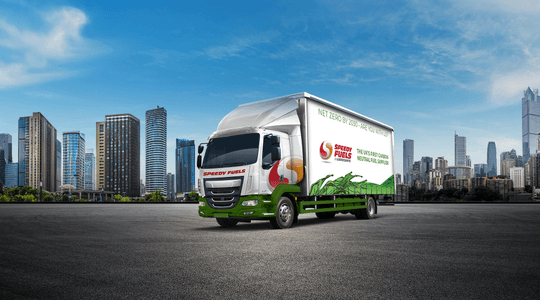With over 50% of the UK’s electricity demand met by renewable sources, 2017 was a record-breaking year. Renewable energy is becoming more popular and now accounts for over 20% of the nation’s electricity, with businesses having a huge influence on the upsurge. With unprecedented change within the market, sustainability is now not only ‘on-trend’ but an obligation as a business.
The Facts
Several surveys have revealed that the consumer is in favour of businesses using green energy and making decisions based on their commitments to promoting sustainable practices.
Findings from the latest government attitudes survey show overwhelming support for using clean energy. What’s more, a survey carried out on behalf of Danish energy firm Ørsted found that the public would rather buy products from companies that use renewable power than from those who do not.
A similar study conducted by study conducted by Ebiquity on consumer attitudes, perceptions and behaviours surrounding corporate responsibility revealed the consumer is increasingly seeking companies that address social and environmental issues. They also acknowledge that they have an obligation to make changes as well.
Green energy not only makes sense for our environment but it is clear that it also has huge benefits for businesses, both ethically and commercially. With that in mind, let’s see who’s setting the trend.
The Role Models
Ørsted
The firm has set a sky-high record and has in fact reduced Denmark’s CO2 emissions by 67% since 2006, which accounts for more than half of its entire CO2 reduction over the same period. The Danish company transformed its business model and has become a renewable energy company.
It cut coal consumption by replacing power stations with sustainable biomass and has installed over 1000 offshore wind turbines. This whirlwind reduction in carbon emissions has most notably been achieved whilst also accomplishing growth and value for shareholders.

Large airlines
Big airlines are now jumping on board to commit to lower CO2 emissions. Thomas Cook and Ryanair have recently announced their pledge to implement eco-friendly strategies, with Ryanair’s mission to become the world’s greenest airline.

Nestle
Another contender has been working hard toward a smaller carbon footprint for years. They phased out 92% of their industrial refrigerants by 2014 and replaced them with sustainable ingredients. 85% of their electricity is from wind farms in their Mexican factories as well as using spent coffee grounds as a supplement fuel in 22 of their factories. Keep up the good work!
Speedy Fuels
We’re also dedicated to a greener future. We are fully aware that our products and services have a negative impact on our environment, which is why we carbon offset all of our driver’s carbon emissions. We purchase carbon credits which then go towards carbon-reducing enterprises worldwide to counteract the carbon released by burning fuel.
Many of our customers are wanting to do their bit for the environment too. That’s why we’ve also put arrangements in place to provide carbon-offset red diesel to help them reduce their carbon footprint. We make all the arrangements for you so you needn’t worry about a thing.
We can also provide customers with another alternative to diesel fuel called HVO fuel, a fossil-free fuel which can be used in place of diesel. Many vehicle manufacturers are providing OEM support for HVO, but you would need to check if your vehicle’s make and model are ready to make the switch without modifications.

We are also passionate about going green in the office. Our 11 simple steps are easy to implement and will help you go green too:
- Use LED light bulbs and energy-efficient equipment
- Implement electronic communications to reduce paper consumption e.g. online billing, emails, direct debit etc.
- Opt for public transport where possible
- Use recycled paper
- Allow staff to work from home to avoid the need to travel
- Use teleconferencing facilities where possible to avoid travelling to meetings
- Reduce waste through reduction, recovery, and recycle
- Regularly service all of our tankers and company cars to ensure fuel efficiency
- Encourage clients to purchase in bulk to save on fuel delivery and decrease CO2 emissions
- Carbon-offset all delivery mileage of tankers
- Train all colleagues on environmental issues to ensure participation
The Takeaway
Taking steps to reduce carbon emissions is fast becoming an imperative part of our daily behaviours. There’s no hesitation that future environmental legislation is going to get tougher, with The Climate Change Act 2008 requiring CO2 emissions and other greenhouse gases to be cut by at least 80% by 2050.
Companies that implement sustainable strategies will be those who can respond with agility to an ever-changing market, with the consumer now opting for environmentally responsible products and services more habitually.
To request a quote and to learn more about carbon offset red diesel or HVO fuel and to see how they can further your green credentials, call our team of specialists today on 0330 123 3773.

